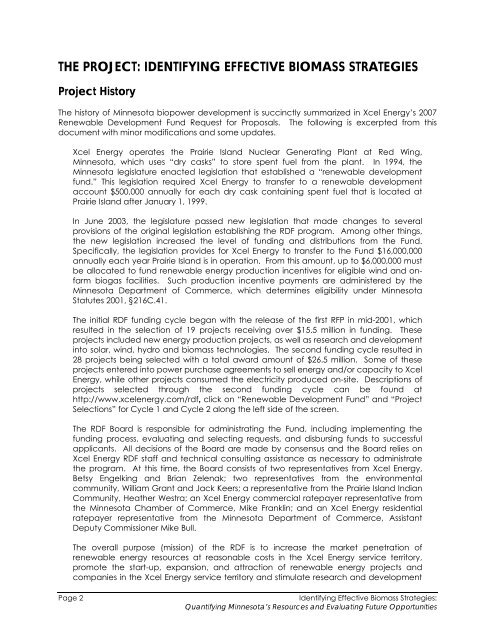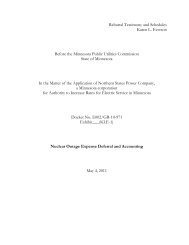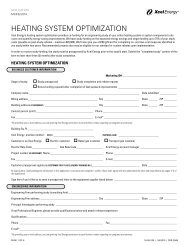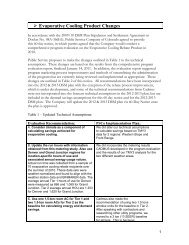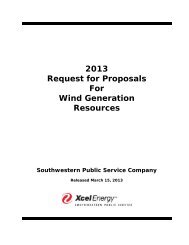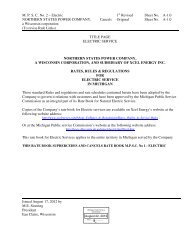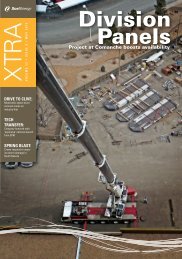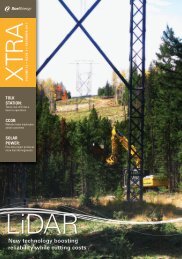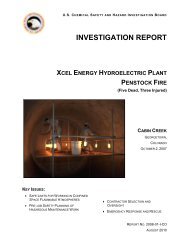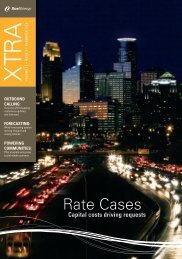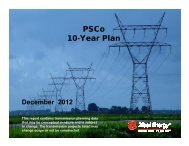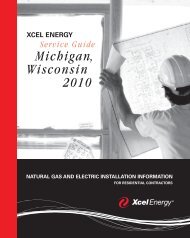Biomass Feasibility Project Final Report - Xcel Energy
Biomass Feasibility Project Final Report - Xcel Energy
Biomass Feasibility Project Final Report - Xcel Energy
Create successful ePaper yourself
Turn your PDF publications into a flip-book with our unique Google optimized e-Paper software.
THE PROJECT: IDENTIFYING EFFECTIVE BIOMASS STRATEGIES<br />
<strong>Project</strong> History<br />
The history of Minnesota biopower development is succinctly summarized in <strong>Xcel</strong> <strong>Energy</strong>’s 2007<br />
Renewable Development Fund Request for Proposals. The following is excerpted from this<br />
document with minor modifications and some updates.<br />
<strong>Xcel</strong> <strong>Energy</strong> operates the Prairie Island Nuclear Generating Plant at Red Wing,<br />
Minnesota, which uses “dry casks” to store spent fuel from the plant. In 1994, the<br />
Minnesota legislature enacted legislation that established a “renewable development<br />
fund.” This legislation required <strong>Xcel</strong> <strong>Energy</strong> to transfer to a renewable development<br />
account $500,000 annually for each dry cask containing spent fuel that is located at<br />
Prairie Island after January 1, 1999.<br />
In June 2003, the legislature passed new legislation that made changes to several<br />
provisions of the original legislation establishing the RDF program. Among other things,<br />
the new legislation increased the level of funding and distributions from the Fund.<br />
Specifically, the legislation provides for <strong>Xcel</strong> <strong>Energy</strong> to transfer to the Fund $16,000,000<br />
annually each year Prairie Island is in operation. From this amount, up to $6,000,000 must<br />
be allocated to fund renewable energy production incentives for eligible wind and onfarm<br />
biogas facilities. Such production incentive payments are administered by the<br />
Minnesota Department of Commerce, which determines eligibility under Minnesota<br />
Statutes 2001, §216C.41.<br />
The initial RDF funding cycle began with the release of the first RFP in mid-2001, which<br />
resulted in the selection of 19 projects receiving over $15.5 million in funding. These<br />
projects included new energy production projects, as well as research and development<br />
into solar, wind, hydro and biomass technologies. The second funding cycle resulted in<br />
28 projects being selected with a total award amount of $26.5 million. Some of these<br />
projects entered into power purchase agreements to sell energy and/or capacity to <strong>Xcel</strong><br />
<strong>Energy</strong>, while other projects consumed the electricity produced on-site. Descriptions of<br />
projects selected through the second funding cycle can be found at<br />
http://www.xcelenergy.com/rdf, click on “Renewable Development Fund” and “<strong>Project</strong><br />
Selections” for Cycle 1 and Cycle 2 along the left side of the screen.<br />
The RDF Board is responsible for administrating the Fund, including implementing the<br />
funding process, evaluating and selecting requests, and disbursing funds to successful<br />
applicants. All decisions of the Board are made by consensus and the Board relies on<br />
<strong>Xcel</strong> <strong>Energy</strong> RDF staff and technical consulting assistance as necessary to administrate<br />
the program. At this time, the Board consists of two representatives from <strong>Xcel</strong> <strong>Energy</strong>,<br />
Betsy Engelking and Brian Zelenak; two representatives from the environmental<br />
community, William Grant and Jack Keers; a representative from the Prairie Island Indian<br />
Community, Heather Westra; an <strong>Xcel</strong> <strong>Energy</strong> commercial ratepayer representative from<br />
the Minnesota Chamber of Commerce, Mike Franklin; and an <strong>Xcel</strong> <strong>Energy</strong> residential<br />
ratepayer representative from the Minnesota Department of Commerce, Assistant<br />
Deputy Commissioner Mike Bull.<br />
The overall purpose (mission) of the RDF is to increase the market penetration of<br />
renewable energy resources at reasonable costs in the <strong>Xcel</strong> <strong>Energy</strong> service territory,<br />
promote the start-up, expansion, and attraction of renewable energy projects and<br />
companies in the <strong>Xcel</strong> <strong>Energy</strong> service territory and stimulate research and development<br />
Page 2<br />
Identifying Effective <strong>Biomass</strong> Strategies:<br />
Quantifying Minnesota’s Resources and Evaluating Future Opportunities


